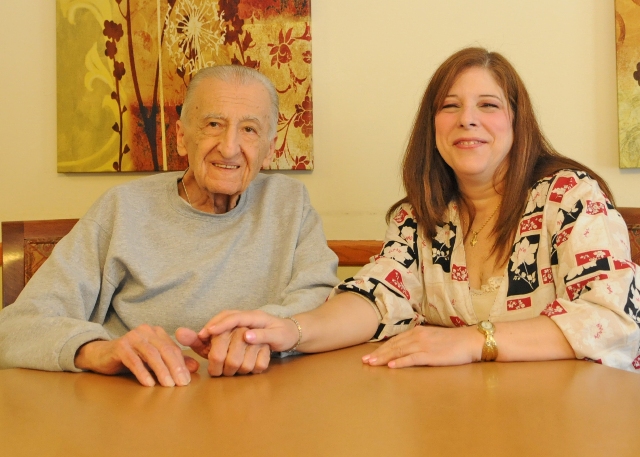Ways to Avoid Family Conflicts When Caring for Aging Parents

When an aging loved one is in need of care, lack of communication and the stress of the situation can cause conflicts between family members – especially during the holidays. We understand that caring for aging parents can be an emotional process, and because of this, family members need each other for support during this time more than ever. The last thing you want is conflict. Unfortunately, disagreements do occur when caring for aging parents, and can add to the stress of the caregiver, family members and even your loved one who is in need of care.
While stressful situations can be difficult, and it’s not always easy to see eye to eye with others on important decisions, there are ways that you can minimize conflicts so that you can focus on what’s most important: family relationships and the care of your loved one. By taking the tips below into consideration, we hope you’ll find it easier to avoid family conflicts while caring for your loved one.
1) Ask for Help – Sometimes, the family member that has taken on the role of the primary caregiver may start to resent their other family members for not helping enough or at all. Making assumptions about family members should be avoided. Instead, the best thing the primary caregiver can do is reach out to their family members by calmly letting them know their challenges and ask for help with specific tasks – whether they are big or small. Or, if you notice a sibling taking on most of the responsibilities, asking how you can lend a hand can make all the difference in your relationship and possibly avoid conflict.
2) Utilize Strengths – Each family member has his or her own strengths that can be used to benefit the situation. For example, one sibling might be best at keeping track of finances and paperwork while another sibling might be best at taking your loved one to doctor appointments. If family members can find a way to contribute based on their strengths, skills and time, family conflicts may be avoided.
3) Find Expert Advice – One reason families may not see eye to eye regarding the care of their loved one can be due to different perspectives of their loved one’s needs. For example, if one sibling feels that their parent needs more care than another, this can cause a disagreement. One way to help the situation is by leaving it up to an expert. Reach out to a healthcare professional, for example, for their opinion on what type of care your loved one needs.
4) Communicate Before Making Decisions – Not talking to family members before making decisions regarding the care of your loved one can cause problems. Whether you’re the primary caregiver not communicating enough with other family members or you’re a family member feeling left out from important decisions, it’s important to talk through the options available before making a decision.
5) Create a Family Schedule – Keeping track of who is doing what and when can make the tasks at hand more difficult when caring for your loved one. By creating a schedule for your family, you and your family members can stay organized and help prevent scheduling conflicts and frustrations. There are many free calendar tools available online, and you can view some options here.
6) Talk Openly about Finances – Figuring out how to pay for the care your loved one needs can be challenging. Since everyone’s financial state is unique, and not every family member can contribute the same amount, disputes may arise between family members when dealing with this part of the process. The main tip to keep in mind when the subject of finances comes up is to have open communication. Having a meeting where all involved family members are present can help to ensure everyone is on the same page. You can talk through how much the care will cost, what each person feels they can contribute and then make a plan based on your findings.
If any of the above situations sound like something you’re experiencing, or if you’re just beginning to talk with family about caring for a loved one, these tips might help to mitigate conflicts and maintain a healthy relationship between family members. If you have ideas that may help others prevent family conflicts while caring for their loved ones, we encourage you to comment below and share your thoughts.
Are you unsure of the type of care your loved one needs, or do you have questions about the services we offer at Concordia? If so, feel free to contact us any time via our online contact form or by calling our administrative headquarters at 724-352-1571. For information on the services we offer, such as In-Home Care, Long-Term Nursing Care, Memory Care, Adult Day Services, and Hospice Care, visit the care levels & services page of our website.
Get Updates From Concordia
There is always a LOT happening at Concordia! Would you like to stay up-to-date with our news and events? Sign up for our monthly e-newsletter here.